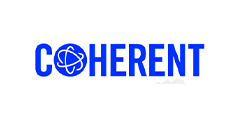Lasers Enable Automated Cell Line Instruments from CYTENA SUCCESS STORY
●CYTENA, Freiburg, Germany, was started in 2014 with a mission to deliver automated and highly efficient instruments for improved cell line development. Based on the founders’ background in Micro- Systems Engineering they identified a broad need to benignly obtain a single live cell from a sample with 100 % reliability and verifiability. Previously, used methods used were repetitive dilutions making extensive use of time-consuming manual pipetting. Target customers included pharma labs for example, who must be able to proof to regulatory bodies like the FDA that a line of cells originates from a single cloned mother cell.
■The Solution
●Dr. Lena Lautscham, Lead R&D Scientist at CYTENA, explains, “CYTENA developed and patented core technology that’s somewhat similar to an inkjet printer. The company chose laser fluorescence imaging as the best technique to rapidly screen droplet for a single cell just before it is released from the instrument’s disposable cartridge nozzle. Most of these instruments use a 488 nm OBIS laser from Coherent; we use other OBIS wavelengths to satisfy custom requests.” The image is captured on a CMOS camera, and image analysis software then determines key sorting criteria about the cell in real time. If the droplet contains a single cell of the user-specified type, it is dropped into a collection tube or wellplate well. Any droplets with no cells, dead cells, other cell types, or multiple cells are vacuumed into a tube and discarded. First generation instruments and software targeted simple cell sorting – dispensing by size and shape . The company then extended the technology to use fluorescent markers to assess cells for specific proteins, differentiate between life and dead cells and would enables more than one cell type to be dispensed in a single run. Dr. Lautscham states, “The OBIS lasers give us three important main advantages for our instruments. They have the superior beam quality we need to ensure our optics always provide uniform illumination of the target volume. They have the unit-to-unit consistency that is critical for our instrument quality and performance. And they provide long-term stability/reliability which virtually eliminates the need for field service due to any laser issues.”
■The Result
●The ongoing market success of their single cell dispensers has been leveraged by CYTENA to diversify into other biotechnology automation products. The company was acquired by CELLINK in 2019, bringing a strong international sales and support network. The resultant growth is evidenced by a 500 % increase in workspace and a 600% growth in personnel, and more importantly by the 200-plus laboratories worldwide that now rely on CYTENA instrumentation.
|
[ Automated Cell Line Instruments ][ biotechnology automation products ][ single cell dispensers ] |
|
|
Case Study |
|
|
|
|
Please see the document for details |
|
|
|
|
|
|
|
|
|
|
|
English Chinese Chinese and English Japanese |
|
|
08.2021 |
|
|
|
|
|
|
|
|
669 KB |
- +1 Like
- Add to Favorites
Recommend
- [产品]日清纺300mA的稳压器R1526,输出电压范围为1.8~9.0V,具有过电流保护
- ept One27® SMT PCB Connectors with a Pitch of 1.27mm is Suitable for Board-to-board Applications ∣ video
- The Installation Advantages, Structural Features and Product Applications of WAGO‘s 2273 Series Compact Wire Connectors ∣ Video
- Greenconn荣获邓白氏企业认证,实力彰显行业领先水平
- [经验]瑞萨32位MCU RA2E1如何利用FSP工具生成sci_uart的配置代码
- RARA Would Like to Give Customers a “One-stop Solution” with All Kinds of Resistive Products
- ELETE Press-fit With High Electrical Reliability, Suitable For Communications, Automotive Electronics, Medical And Other Industries
- Coherent Showcased Award-Winning 100G and 400G Coherent Transceivers at OFC 2023
All reproduced articles on this site are for the purpose of conveying more information and clearly indicate the source. If media or individuals who do not want to be reproduced can contact us, which will be deleted.































































































































































































































































































































































































































































































































































































































































































































































































































